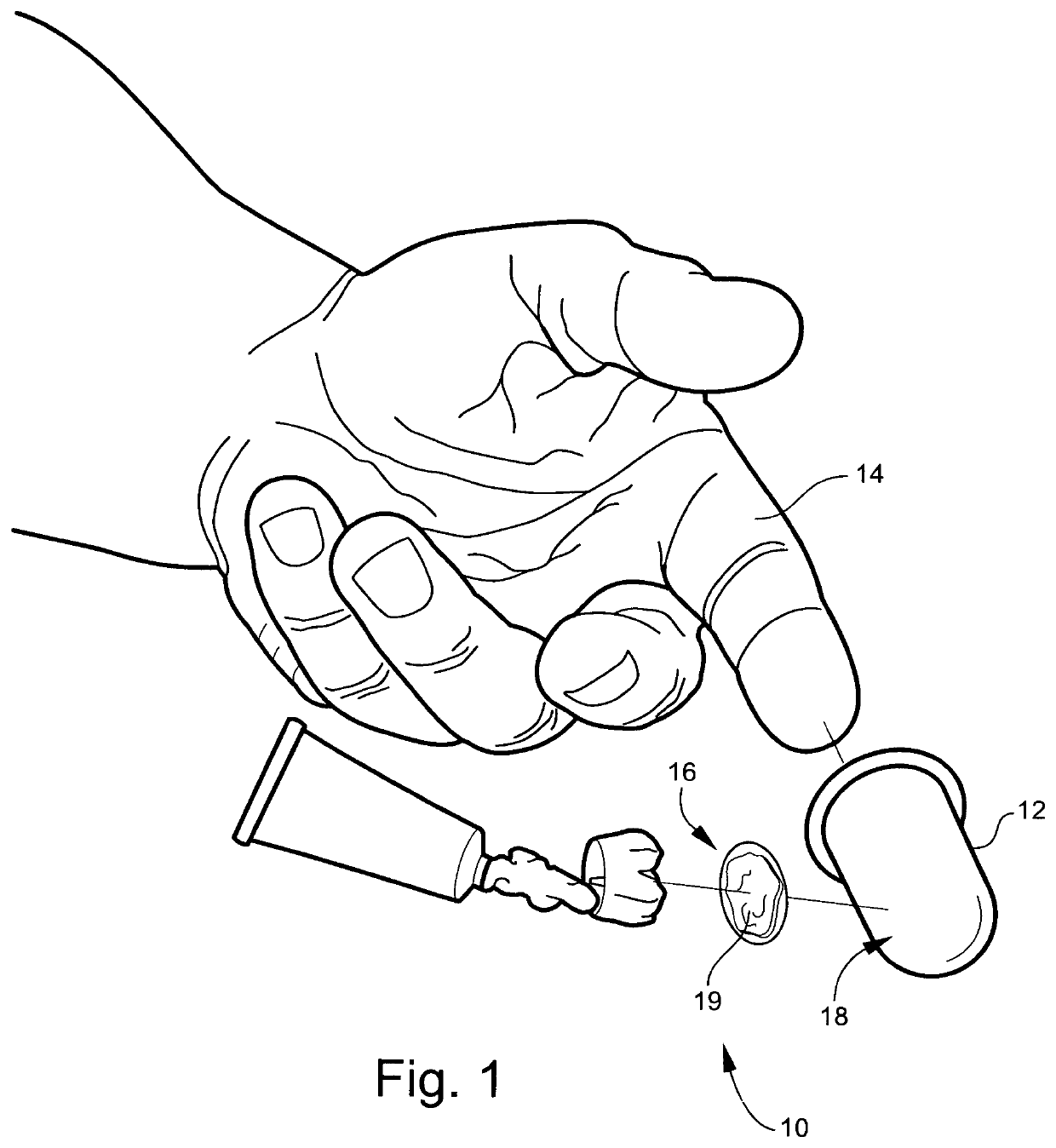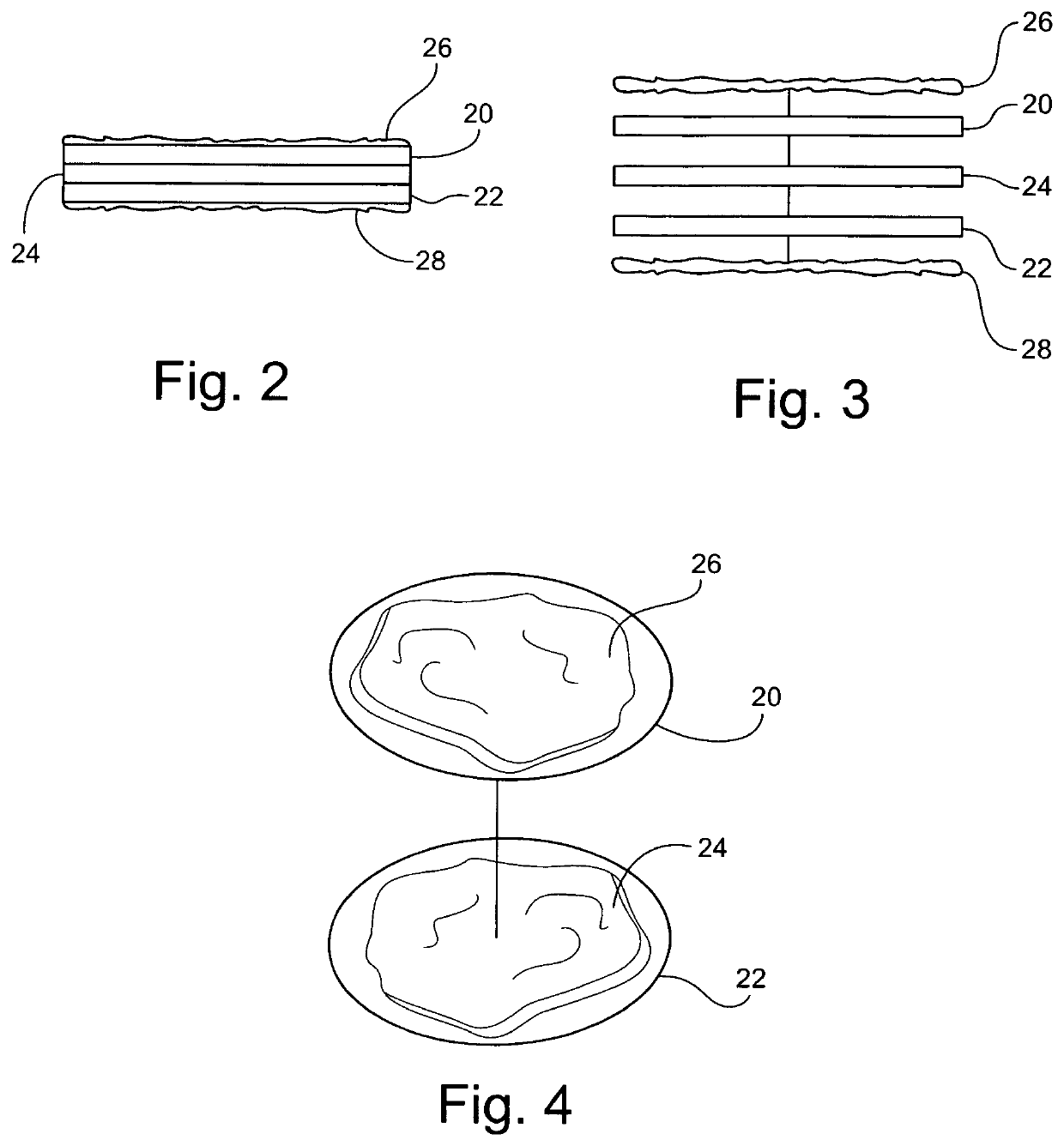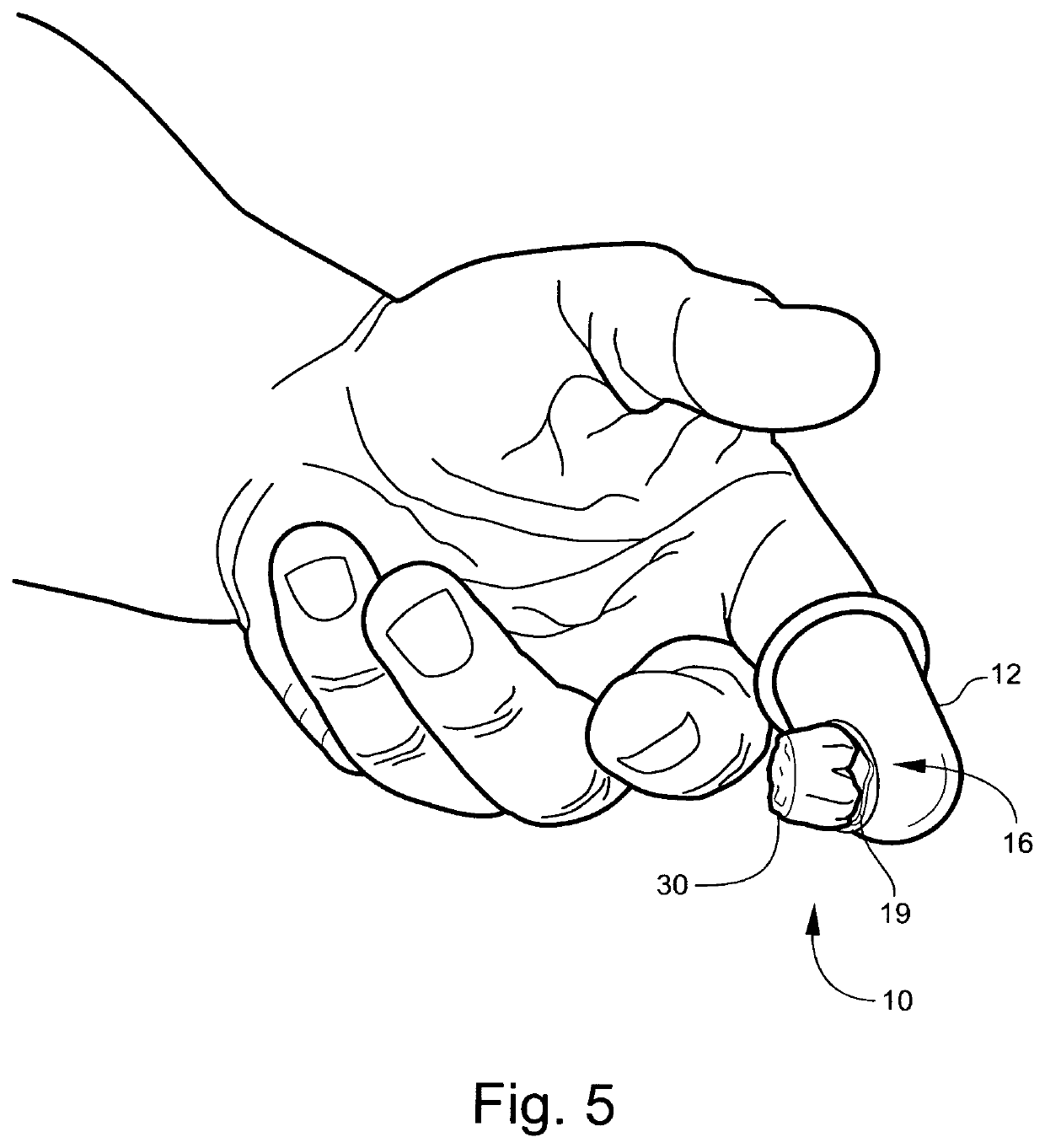Prosthodontic tool and method for placing and fitting crowns and inlays
a technology of prosthodontic tools and inlays, applied in the field of prosthodontic tools and methods for placing and fitting crowns and inlays, can solve the problems of gum disease and tooth decay, cumbersome and risky proper placement and adjustment of artificial crowns, and increase the likelihood of dropping the crown
- Summary
- Abstract
- Description
- Claims
- Application Information
AI Technical Summary
Benefits of technology
Problems solved by technology
Method used
Image
Examples
embodiment 10
[0032]FIG. 5 illustrates the same preferred embodiment 10 as illustrated in FIG. 1 with a periodontal prosthetic 30 adhered to the bilayered adhesive patch 16. To insert the periodontal prosthetic 30 into a patient's mouth the finger covering 12 with the attached adhesive patch 16 is pressed onto a portion of the periodontal prosthetic 30 creating an adhesive bond between the periodontal prosthetic 30 and the exposed adhesive surface 19 of the bilayered adhesive patch 16. When the finger covering 12 is lifted, the bilayered adhesive patch 16 remains adhered to the sterile semi-planar surface 18 of the finger covering 12 and the periodontal prosthetic 30 remains adhered to the exposed side 19 of the bilayered adhesive patch 16.
[0033]FIG. 14 illustrates that once the periodontal prosthetic 30 is attached to the bilayered adhesive patch 16, dental cement is added to the base of the periodontal prosthetic.
[0034]FIG. 6 demonstrates the same preferred embodiment 10 inserting the periodont...
embodiment 40
[0036]FIG. 8, FIG. 9 and FIG. 10 illustrate an alternate embodiment 40 wherein the finger covering 12 is a band of sterile material 42 instead of a finger cot or glove.
[0037]FIG. 12 and FIG. 13 display a kit 90 that features the finger covering 12 and the bilayered adhesive patches 16 stored separately. When this embodiment is used, the finger covering 12 is placed over a finger 14 creating a sterile semi-planar surface 18 on which the bilayered adhesive patch 16 can be adhered. The bilayered adhesive patch 16 is stored on a release strip 50 consisting of a release surface 52 from which the patches 16 can be easily removed. The bilayered adhesive patch 16 is stored with one adhesive layer 26 facing the release surface 52 and the other adhesive layer 28 facing away from the release surface 52. To remove the patch 16 from the release strip 50, the sterile semi-planar surface 18 of the finger covering 12 is pressed on the exposed adhesive layer 28 of the bilayered adhesive patch 16 cre...
PUM
 Login to View More
Login to View More Abstract
Description
Claims
Application Information
 Login to View More
Login to View More - R&D
- Intellectual Property
- Life Sciences
- Materials
- Tech Scout
- Unparalleled Data Quality
- Higher Quality Content
- 60% Fewer Hallucinations
Browse by: Latest US Patents, China's latest patents, Technical Efficacy Thesaurus, Application Domain, Technology Topic, Popular Technical Reports.
© 2025 PatSnap. All rights reserved.Legal|Privacy policy|Modern Slavery Act Transparency Statement|Sitemap|About US| Contact US: help@patsnap.com



